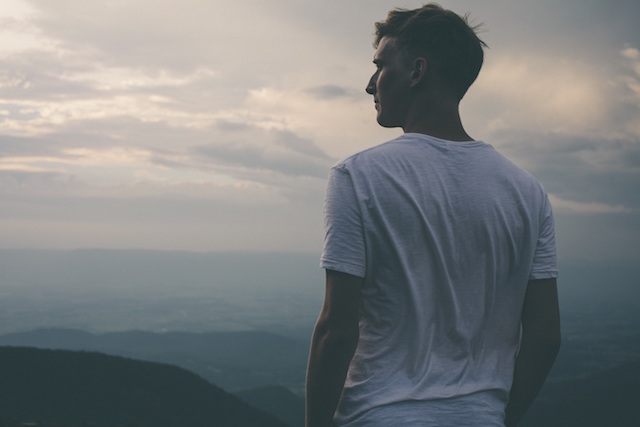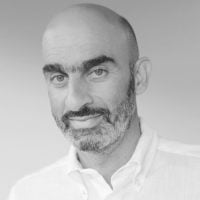
“‘Tis better to have loved and lost than never to have loved at all.” ~ Alfred Lord Tennyson
I was giving a seminar on the power of the mind, and at the end, I was asked if I was able to change my behaviour with the knowledge I had just imparted upon my students.
I paused and gave a weak reply. The truth was I hadn’t changed much. This happened almost six years ago.
However, all that changed when I watched Brené Brown’s TED Talk: The Power Of Vulnerability and when I read her book The Gifts of Imperfections. I instinctively knew that this was the missing piece in the puzzle.
Brené Brown defines vulnerability as “uncertainty, risk, and emotional exposure. It is the core, the heart, the centre, of meaningful human experiences.” She continues to say that “Vulnerability isn’t good or bad: it’s not what we call a dark emotion, nor is it always a light, positive experience.”
At age 11, my innocence was shattered due to a Coup d’état in Ghana. I had to leave my comfortable, sheltered life, my friends, my school, and my environment. I found myself in a new country, England, with few people like me, and few who liked me.
I quickly learned that, to fit into my new environment meant not to share any dark emotions like fear, shame, grief or disappointment. I had to show that I was tough, cool and almost perfect.
Simply put, I could not be vulnerable and I had to close my heart to protect myself. In doing so, I not only closed myself to the dark emotions but also to the lighter ones, and I carried this way of being subconsciously well into my 40s.
Until we break down those hardened walls that have been built inside our hearts for so long, we are not capable of being vulnerable enough to be able to change.
These are the five ways that becoming vulnerable transformed my life:
1. Emotions add a charge to thoughts resulting in action
A thought without emotion is like a bird without its wings. It’s not going to get very far.
As I began to understand the power of vulnerability, I started delving deep into my core using journaling as a tool to dig deeper and deeper into my heart. I learned to access the full range of my emotions so that I could process both pain and joy.
I faced my deepest fears revisiting my past, questioning my beliefs. I got so emotionally fired up that I would regularly cry during my early morning runs. I didn’t know then that I was slowly breaking the impenetrable walls that I had built since my school days, teardrop by teardrop.
I recognised that the power of the mind and willpower were sometimes not enough to effect lasting change. The emotions are the “why” of an action; they charge a thought, magnifying its impact substantially. Guilt and disgust at knowing what I needed to and yet not doing so triggered me into action.
2. I am capable of love.
“We cultivate love when we allow our most vulnerable and powerful selves to be deeply seen and known, and when we honour the spiritual connection that grows from that offering with trust, respect, kindness and affection.” ~ Brené Brown
The more I faced my fears and shed the layers of emotions that were weighing heavily on my heart, the more I loved myself. We can only love others as much as we love ourselves, and so only in loving myself was I capable of receiving and giving love.
My relationships improved and I started trusting people much more. It was like a new world had opened up to me, one that was shut off for a long time. I understood that love is something that we nurture like everything else in life and it doesn’t just magically appear and disappear with a flick of the fingers.
3. I recognise compassion.
“Compassion is not a relationship between the healer and the wounded. It’s a relationship between equals. Only when we know our own darkness well can we be present with the darkness of others. Compassion becomes real when we recognise our shared humanity.” ~ Pema Chodron
I started to understand what compassion meant and to put myself in the shoes of others for the first time in my life. I was always so self-involved that it was difficult for me to fathom people’s actions and accept them for who they are. But with vulnerability, I accepted myself more and I now see people in a different light as if they were my brothers and sisters.
Three years ago, I started a foundation, Born to be free, where we look after 50 impoverished kids. We take care of their schooling, train them in soccer and teach them basic life lessons. We are giving them options that poverty has taken away from them. Their stories are heartbreaking and relating to them keeps me grounded and keeps me human.
4. I am much more connected.
“The energy that exists between people when they feel seen, heard, and valued; when they can give and receive without judgment; and when they derive sustenance and strength from the relationship.” ~ Brené Brown
In his book Social Intelligence: The New Science of Human Relationships, Daniel Goleman explores how the latest findings in biology and neuroscience confirm that we are hardwired for connection and that our relationships shape our biology as well as our experiences.
How can we connect to each other when we have erected barriers inside our hearts?
I now share and give much more of myself and my thoughts, through my talks, writings and most of all my actions.
Also I now accept from others, something, which proved difficult at first, as I wanted to do everything alone, and to feel superior about it. I wanted to feel like I didn’t need anyone.
However, energy has to travel both ways before we can call it true connection.
5. I now understand shame.
“Shame is the intensely painful feeling or experience of believing that we are flawed and therefore unworthy of love and belonging. Shame is basically the fear of being unlovable—it’s the total opposite of owning our story and feeling worthy.” ~ Brené Brown
The feeling of shame is universal, and if not identified, can lurk within us and control our actions and non-actions. Shame makes us feel unworthy and convinces us that we are incapable of doing anything. It grows in silence, secrecy and judgement often leading us to deception, lies and other destructive behaviours.
There is a difference between shame and guilt. Shame is about who we are. For example, “I am bad.” Guilt is about our behaviour. For example, “My behaviour is bad.”
Though guilt is a dark emotion, it could be used as a catalyst to initiate change in our behaviour. Shame is much more dangerous as it says we can do little but accept how bad we are and it pushes us into withdrawing, hiding, or instead trying to appease someone when we shouldn’t, or worst of all by attacking others to hide our shame.
My art teacher scolded and embarrassed me in front of my classmates when I was 13 years old and as a result of that I shut the door to my creativity for almost 30 years, ashamed of ever bringing up the subject or even daring to enter into the realm of creativity, while convincing myself I was more of a science person. However I’ve now found my creativity through writing and it’s exactly the goodness that has been missing from my life for so long.
Vulnerability is not weakness but rather a path to opening our hearts. When we start to trust our hearts, all fears dissipate and we start accepting that we are imperfect beings living in a not so perfect world.
To live with our hearts open, carrying our wounds and scars with us is very scary but the alternative of not doing so is much scarier.
Vulnerability is the only way to live a full, courageous and authentic life. This is what being human is all about.
Author: Mo Issa
Editor: Catherine Monkman
Image: Karl Fredrickson/Unsplash
Ready to join?
Hey, thanks so much for reading! Elephant offers 1 article every month for free.
If you want more, grab a subscription for unlimited reads for $5/year (normally, it's $108/year, and the discount ends soon).
And clearly you appreciate mindfulness with a sense of humor and integrity! Why not join the Elephant community, become an Elephriend?
Your investment will help Elephant Journal invest in our editors and writers who promote your values to create the change you want to see in your world!
Already have an account? Log in.
Ready to join?
Hey, thanks so much for reading! Elephant offers 1 article every month for free.
If you want more, grab a subscription for unlimited reads for $5/year (normally, it's $108/year, and the discount ends soon).
And clearly you appreciate mindfulness with a sense of humor and integrity! Why not join the Elephant community, become an Elephriend?
Your investment will help Elephant Journal invest in our editors and writers who promote your values to create the change you want to see in your world!
Already have an account? Log in.
 Share on bsky
Share on bsky




Read 0 comments and reply